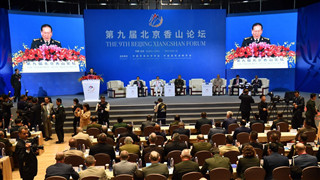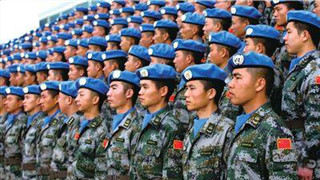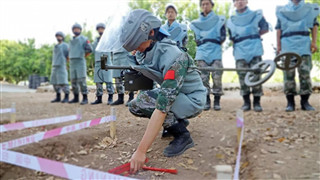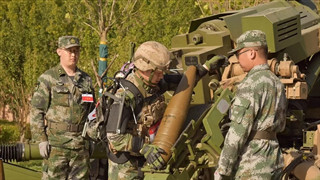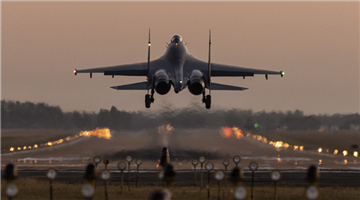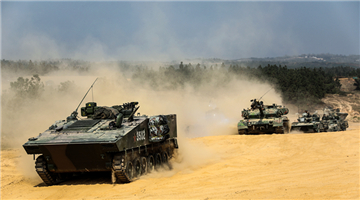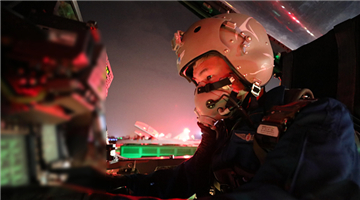By Lan Shunzheng
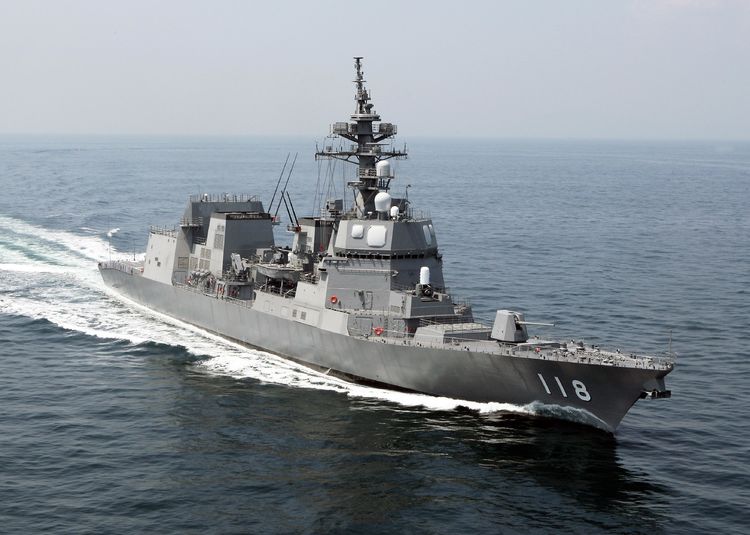
Japanese Foreign Minister Toshimitsu Motegi and the US Secretary of State Mike Pompeo recently held a phone conversation about the Middle East. Toshimitsu Motegi said Japan won’t join the US-led “escort coalition” but will send its Self-Defense Forces (JSDF) to the Middle East to ensure the safe transportation of petroleum to Japan.
Japan has to keep a friendly relation with Iran because it relies heavily on petroleum import from the Middle East, but it is in an alliance with the US, so its compromise is within reason given the worsening US-Iran relation.
However, a closer look would show that this move, which seemingly offends neither side, actually conceals Tokyo’s intention of sending Japanese troops overseas in one's own right.
After WWII, the JSDF has been prevented from sending troops overseas due to relevant resolutions of the Japanese Diet and the objection of all peace-loving countries and people in the world. To circumvent the supervision and criticism of the international community, JSDF has been carrying out overseas operations in the name of other countries or organizations.
On one hand, Tokyo has assigned JSDF overseas in the name of participating in UN operations. In 1991, it sent mine sweepers of its maritime self-defense forces (JMSDF) to the Persian Gulf, taking the first step of overseas operation.
In 1992, the Japanese Diet passed the Act on Cooperation for United Nations Peace-keeping Operations (PKOs) and Other Operations, which provided the legal basis for JSDF to join UN’s overseas military operations regardless of the pacifist principles of Japanese Constitution.
On the other hand, Tokyo has followed Washington to carry out global military operations based on their alliance. After the war broke out in Afghanistan, the Japanese Diet quickly passed the Anti-Terrorism Special Measures Law, Amendment to the Act of Self-defense Forces and Amendment to the Japan Coast Guard Law in order to coordinate with America’s military operations, expand JSDF’s scope of activities and lower the threshold for it to use weapons. The prime minister could even give orders to JSDF without the Diet’s prior approval.
After the Iraqi war broke out in 2003, Japan passed the Law Concerning the Special Measures on Humanitarian and Reconstruction Assistance in Iraq, which permitted it to send JMSDF vessels to provide “logistics support” for American troops, no longer necessarily needing the invitation from the UN or the host country.
After so many years, Japan, with its rising national strength and “major country” consciousness, is no longer satisfied with playing second fiddle on this issue and has an ever-stronger desire to send troops overseas in its own name.
Since May this year, several oil tankers have been attacked in the Gulf region. The US accused Iran of being the black hand behind the scene and took that as an excuse to promote its “escort coalition”, trying to muster several countries to pressure Iran in the pretext of “security of navigation”. This offered Japan the opportunity.
As a result, Japanese Defense Ministry formed a group to study relevant issues about sending JSDF to the Middle East, and the Joint Staff, or Tōgō Bakuryō Kanbu, discussing specific subjects such as tasks, weapons and equipment, and emergency responses. Japanese Defense Minister Taro Kono also asked the Defense Ministry to “assign JMSDF vessels to collect intelligence”.
According to provisions in Japan’s Law of the Setup of the Defense Ministry, assigning JSDF for the purpose of investigation and research is subject to even fewer restrictions, so Taro Kono’s requirement was to make Japan’s troop sending less sensitive.
Although Tokyo claimed it won’t deploy military vessels to the Strait of Hormuz, the center of the US-Iran tension, its words and deeds have all indicated its determination to have more freedom in sending troops overseas.
Providing security guarantee for its oil tankers is indeed a great excuse for Japan to send troops overseas, but no matter how it tries to whitewash the move, the international community should be vigilant to its contravention to the restriction on the overseas operations of JSDF.

